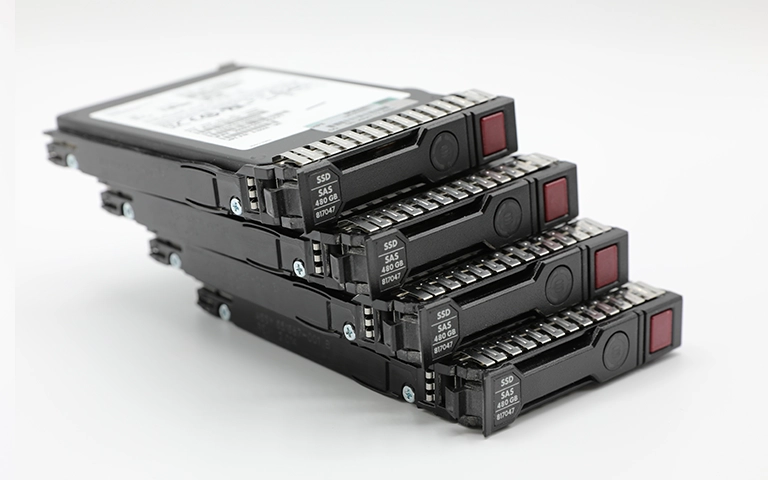Why Server Cloud Backup Matters
Modern businesses rely on constant access to data. A single server failure, ransomware attack, or accidental deletion can cause costly downtime and disrupt operations.
Server cloud backup provides a secure and automated way to protect your files. It stores copies of your data offsite and keeps them updated in real time, ensuring fast recovery when something goes wrong.
If your company needs reliable data protection or assistance with existing backups, RAID Recovery Services can help you safeguard critical information and maintain business continuity.

What Is Server Cloud Backup?
Server cloud backup is a method of copying and storing your business data on remote servers through an internet connection. Instead of keeping all files on local drives or physical tapes, your data is securely transmitted and saved in the cloud.
These backups are encrypted, automated, and accessible from any authorized device. This ensures that even if a local server fails, your data remains intact and recoverable.
Compared to traditional backups, cloud backup offers flexibility, scalability, and faster restoration times, making it an ideal choice for businesses that need continuous data protection and minimal downtime.
For a clearer understanding of how cloud backup differs from traditional storage, explore our guide on RAID vs Backup.
Can You Back Up a Server to the Cloud?
Yes, you can back up almost any server to the cloud, whether it runs Windows, Linux, or a virtualized environment. Cloud platforms allow businesses to create secure backup routines that automatically copy and sync server data to remote storage.
However, setting up cloud backups correctly requires more than just uploading files. You must configure encryption, access permissions, and backup schedules to ensure consistent and compliant data protection. Improper setup can lead to incomplete backups or security gaps that put sensitive information at risk.
For small teams, manual setup may work temporarily, but growing businesses benefit from professional configuration and monitoring. A properly managed backup system ensures reliable recovery when disaster strikes.
To understand how cloud backups fit into your overall IT strategy, you can also review our article on Servers for Business.

How Server Cloud Backup Works
Server cloud backup follows a simple process designed to protect your data automatically and securely.
Data Encryption: Before transfer, files are encrypted to prevent unauthorized access.
Secure Transfer: The data is sent through a protected internet connection to a remote storage server.
Redundant Storage: The cloud provider stores copies of your data across multiple servers to ensure durability and reliability.
Incremental Updates: Only new or changed files are uploaded after the first backup, reducing bandwidth and storage usage.
Quick Restoration: In case of data loss or system failure, files can be restored directly from the cloud to your server or another device.
This process minimizes manual effort while ensuring your backups remain current and protected. For additional insight into remote storage methods, read our post on Tape Backup for Business.
Benefits of Using Cloud Backup for Servers
A reliable cloud backup strategy offers multiple advantages that help businesses stay secure and operational:
Continuous Data Protection: Automated backups run on a schedule, reducing the risk of human error and data loss.
Scalability: Cloud storage grows with your needs, allowing you to expand capacity without extra hardware.
Disaster Recovery: Even if physical servers are damaged, data remains safe in the cloud and can be restored quickly.
Remote Accessibility: Authorized users can access and recover files from any location with an internet connection.
Cost Efficiency: Cloud-based systems eliminate the need for large infrastructure investments and maintenance.
Implementing these advantages gives your organization flexibility and confidence in data availability. To learn how this approach supports business continuity, explore our guide on Business Data Recovery.

When Cloud Backup Isn’t Enough
While cloud backups offer strong protection, they are not foolproof. Data stored in the cloud can still become corrupted, overwritten, or inaccessible if synchronization fails or malware spreads before the backup completes.
Hardware failures within cloud infrastructure, accidental deletions, or encryption errors can also affect recovery success. In such cases, even the most reliable cloud backup might not restore every file correctly.
This is why having a verified recovery plan is just as important as creating backups. Regular testing ensures your copies are functional and restorable when needed.
If your backup fails or critical data becomes unreadable, professional recovery may be required. For a detailed explanation of why backup and recovery are not the same, visit our article on RAID Is Not Backup.
Fast turnaround times for business-critical data
How RAID Recovery Services Can Help
Even with a well-planned backup system, data loss can still happen. When cloud or local backups fail, RAID Recovery Services provides professional solutions to retrieve critical business data.
Our engineers specialize in recovering files from failed RAID arrays, corrupted cloud environments, and hybrid systems. Using advanced imaging and validation processes, we reconstruct file structures while maintaining data integrity and confidentiality.
We handle recovery from complex environments, including physical servers, virtual machines, and network-attached storage. Each case is evaluated individually to ensure the safest and most effective recovery strategy.
If your organization is unable to access data from a damaged backup or failed server, RAID Recovery Services is ready to help you restore operations quickly and securely. Learn more about similar scenarios in our post on Server Crash Recovery.

Trust the experts with proven results
Frequently Asked Questions
What is the main purpose of server cloud backup?
The main purpose is to store copies of your critical business data securely in the cloud, ensuring you can restore it quickly after hardware failure, cyberattack, or accidental deletion.
How often should I back up my server to the cloud?
Backup frequency depends on how often your data changes. Most businesses schedule automatic backups daily or hourly to keep information current.
Is cloud backup safer than local backup?
Cloud backups offer higher protection because they are stored offsite, encrypted, and supported by redundancy. However, local backups are still valuable for faster recovery in emergencies.
Can I recover individual files from a server cloud backup?
Yes. Most cloud platforms allow file-level recovery so you can restore specific folders or documents without performing a full system restore.
What should I do if my cloud backup fails?
Stop attempting manual recovery to prevent further data corruption. Contact a professional recovery provider like RAID Recovery Services for secure evaluation and data restoration.